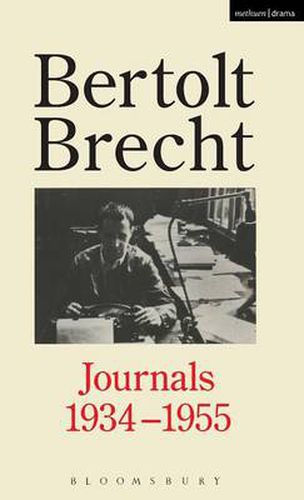Readings Newsletter
Become a Readings Member to make your shopping experience even easier.
Sign in or sign up for free!
You’re not far away from qualifying for FREE standard shipping within Australia
You’ve qualified for FREE standard shipping within Australia
The cart is loading…






Those who dismiss Brecht as a yea-sayer to Stalinism are advised to read these journals and moderate their opinion. (Paul Bailey, Weekend Telegraph)
Brecht’s Work Journals cover the period from 1938 to 1955, the years of exile in Denmark, Sweden, Finland and America, and his return via Switzerland to East Berlin. His criticisms of the work of other writers and intellectuals are perceptive and polemic, and the accounts of his own writing practice provide insight into the creation of his dramatic works of the period, the development of his political thinking and his theories about epic theatre. Also integrated into the journals are Brecht’s immediate reactions to and commentary upon the events of the period: his political exile’s view of the course of World War II and his account of the House Un-American Activities committee.
A marvellous, motley collage of political ideas, domestic detail, artistic debate, poems, photographs and cuttings from newspapers and magazines, assembled, undoubtedly for posterity by one of the great writers of the century (New Statesman and Society)
$9.00 standard shipping within Australia
FREE standard shipping within Australia for orders over $100.00
Express & International shipping calculated at checkout
Those who dismiss Brecht as a yea-sayer to Stalinism are advised to read these journals and moderate their opinion. (Paul Bailey, Weekend Telegraph)
Brecht’s Work Journals cover the period from 1938 to 1955, the years of exile in Denmark, Sweden, Finland and America, and his return via Switzerland to East Berlin. His criticisms of the work of other writers and intellectuals are perceptive and polemic, and the accounts of his own writing practice provide insight into the creation of his dramatic works of the period, the development of his political thinking and his theories about epic theatre. Also integrated into the journals are Brecht’s immediate reactions to and commentary upon the events of the period: his political exile’s view of the course of World War II and his account of the House Un-American Activities committee.
A marvellous, motley collage of political ideas, domestic detail, artistic debate, poems, photographs and cuttings from newspapers and magazines, assembled, undoubtedly for posterity by one of the great writers of the century (New Statesman and Society)